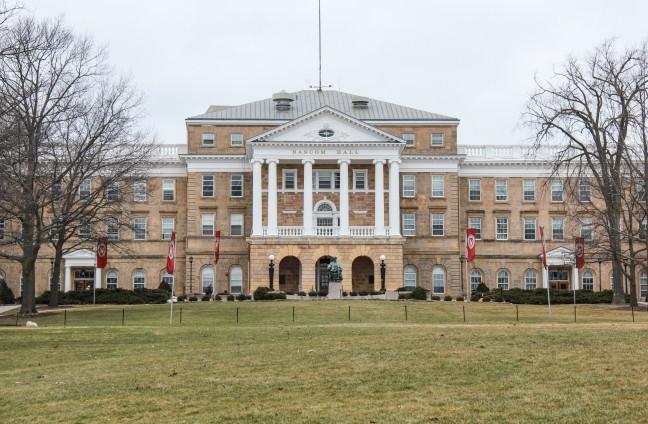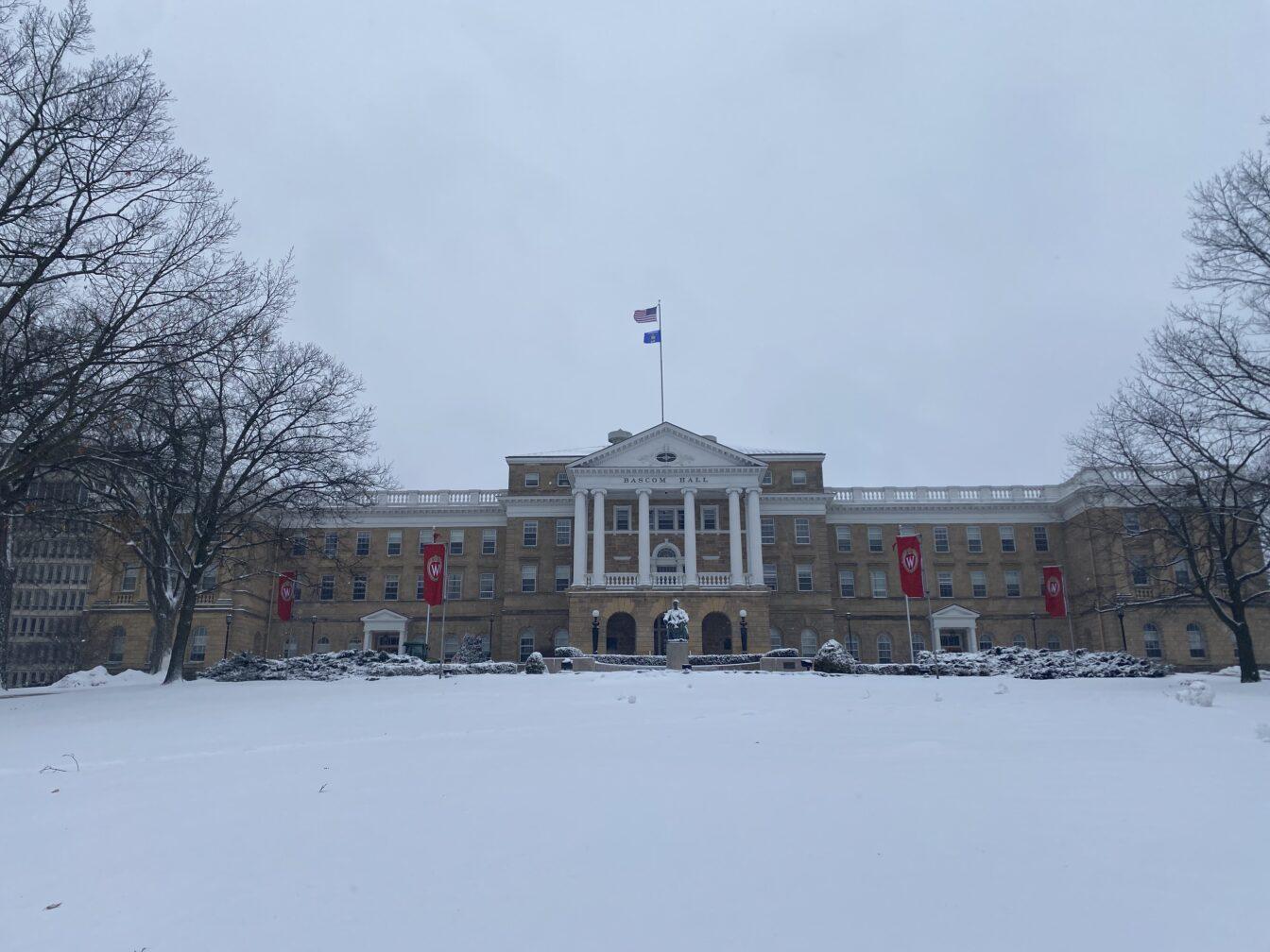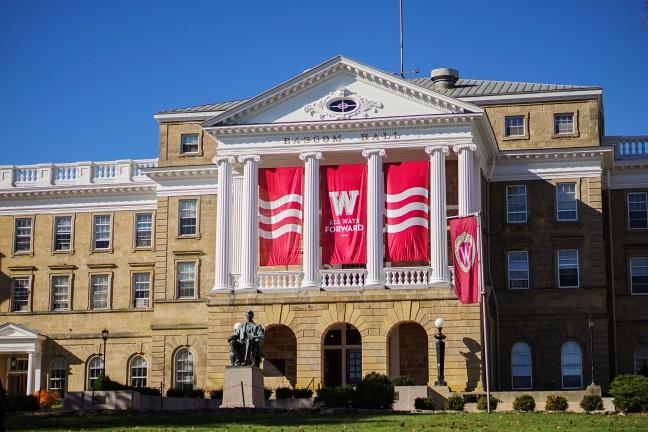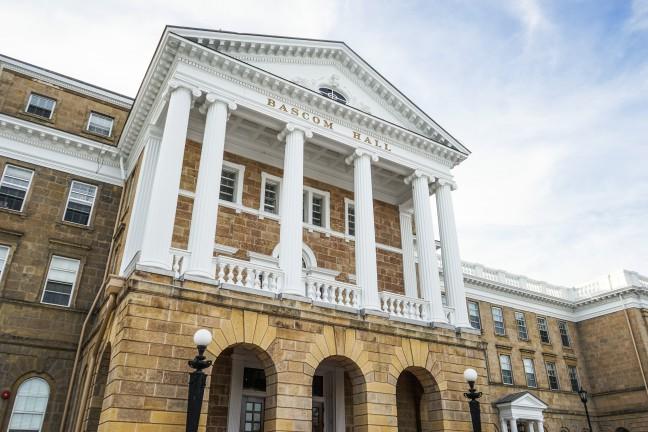The Badger Herald Editorial Board deemed the following stories important to watch throughout the semester.
We all must continue #TheRealUW
Minority students on campus have long known of the University of Wisconsin’s diversity problem because they’ve lived it day-in and day-out. In part, due to increased media coverage and in part due to minority students’ own vocal efforts on social media, it’s becoming increasingly difficult for more privileged members of campus to ignore the struggles of their classmates.
2016 has been a tumultuous time for UW students. From the Swastika pasted on the door of a Jewish student in Sellery Hall, to the anti-Semitic graffiti found around campus, to stereotypical war chants that disrupted a healing event for Native American survivors of sexual assault, racism can no longer be ignored.
UW officials respond to ‘war chant’ incident at Native American community gathering
Through efforts like #TheRealUW, minority students on campus have made their voices and demands known. The entire student body must continue to inform themselves of topical issues, because with student turnover each year, it becomes easy for that progress to be lost.
Confronting #TheRealUW: Marginalized students reveal experiences of an unwelcoming campus
Continue to keep university administration in check. This year they’re rolling out a new cultural competency training to appease the demands of student activists, but these types of trainings have been described as low-hanging fruit, and few argue they will be effective.
This campus must continue the dialogue, but more than that, it must move forward with action. This starts with the individual.
Walker, Board fight to make college “affordable”
In spring, Gov. Scott Walker rolled out a plan to make college more “affordable.” Now, that momentum is being carried into this fall as the UW System Board of Regents has recently released their 2017-19 budget proposal with college affordability as one of its top priorities.
Regents approve $42.5 million budget focused on developing workforce, college affordability
In this pursuit of affordable post-secondary education, Walker and much of the state government seem to have settled on the theme of shortening the time a student spends in school in order to reduce the amount of debt these student will inevitably accrue. But the issue is Walker and his partners in crime haven’t been able to agree on the best way to achieve this goal.
While the UW System is requesting $42.5 million in state funding and the thawing of the tuition freeze, Walker’s steadfast in his fiscal plans.
Thus, the stage is set for the battle between Walker and the board of regents for the future of the UW System. Only time will tell who the winner will be, and hopefully, the students of the UW System won’t lose out.
Political prize fight
Alright, folks, buckle up, the final stretch of election season could be a bumpy one.
While the controversial Republican presidential nominee Donald Trump and former Secretary of State Hillary Clinton, his Democratic counterpart, duke it out on the national stage, a Wisconsin Senatorial rematch is coming to a head in November.
In the Republican corner, weighing in at two tons of fiscal and social conservatism we have incumbent Sen. Ron Johnson, R-Wis.
But don’t let that incumbent advantage fool you. The Wisconsin multi-millionaire faces a formidable opponent in former Sen. Russ Feingold, D-Wisc., who has returned to represent the Democratic corner after a six-year hiatus.
This is not the pair’s first political tango. In 2010, Johnson defeated Feingold, who held the position for three terms, in a surprise victory to take the Senate seat he currently holds.
But things looks a little different this time around.
Johnson can no longer benefit from the wave of Tea Party support, which helped him claim the seat in first place and his name recognition is mediocre at best. Plus, there’s the Trump Effect.
Johnson reluctantly endorsed Trump earlier this year and the outspoken businessman has proven to be a bit of headache for Wisconsin Republicans — just ask House Speaker Paul Ryan, R-Janesville. Furthermore, Trump wasn’t popular with Republican voters in Wisconsin’s April presidential primary to begin with, so it’s unclear how the unlikely political alliance will pan out for Johnson.
Women’s health is fleeting in Wisconsin
Since Gov. Scott Walker cut Planned Parenthood funding in 2014, Wisconsinites have watched as a total of six clinics have been slashed off the map, with the Appleton clinic’s shutdown delivering the most recent blow. Walker’s lack of commitment to maintaining reproductive rights will continue to have serious ramifications for women’s health in Wisconsin.
Despite the fact that abortions are completely legal throughout the United States, Planned Parenthood continues to fight battles at every turn on behalf of women everywhere. Often, they are forced to withhold an array of reproductive health services to protect the safety of their own employees. In the case of Appleton, the clinic has buckled under threats of force and the removal of this clinic leaves only three abortion facilities in the entire state.
Planned Parenthood is a saving grace for uninsured and underinsured patients, many of whom happen to be low-income women of color, who are bound to be hit hardest by this decision. Research continues to prove that barriers to abortion do not lead to a decline in abortion rates, but rather an increase in women seeking unsafe and illegal methods, so losing one of the few reliable abortion providers left in Wisconsin is nothing less than a serious public health crisis.
Wisconsin now has only two Planned Parenthood abortion clinics
Police-community relations strained
Tensions between police and community members are running high nationally, and the Madison Police Department has proven to be no exception, especially after the highly publicized arrest of Genele Laird this summer.
MPD to review arrest at East Towne Mall that sparked community outrage
In the wake of this event and a tense council meeting on the police department’s role in the community, Madison’s City Council chose five alders to form a subcommittee to look into police policies, training, data and trends.
It is important to keep an eye on the subcommittee, what their findings are and if their recommendations will even be adopted. The only absolute is the relationship is strained between the policing force, the city government and the greater Madison community.
Soglin bipolar with homeless population
Madison has a history of trying to hide its problems with homelessness.
In early 2016, after taking heat from ACLU of Wisconsin, the city backed off its controversial four-year-old panhandling ban, which effectively prohibited panhandling on Capitol Square and State Street.
Then in August, while citing safety concerns, Madison Mayor Paul Soglin proposed a ban on panhandling on street medians around the city.
Soglin was also behind a 2015 policy that banned Madison’s homeless from staying in front of city buildings, particularly the City County Building — an ideal location for some because of the building’s overhang, which offers protection from the elements.
Ordinance banning homeless from city buildings to be enforced
While these efforts are helping to remove visible evidence of homelessness in Madison, they are doing little to help the people in need. Though it’s encouraging to see the city and county finally making progress on securing a site for a homeless day shelter and resource center — a saga years in the making — more needs to be done to address these issues rather than sweeping them under the rug.
Herald Editorial Board: For second consecutive year, city fails to provide for homeless
The little city that couldn’t get a grant
If at first you don’t succeed, try and try again. Unfortunately, perseverance isn’t helping the city of Madison find a solution to its vastly overcrowded buses and underfunded public transportation system.
For the second year in a row, the city lost out on a major federal grant that would have taken pressure off of its already-stressed transit system. Madison Metro’s garage currently houses 50 more busses than it’s supposed to. This is part of why the city’s bus routes are so overcrowded. If you’ve ever ridden an 80, you know how this feels.
While ridership reached more than 15 million in 2014, overcrowding and low gas prices caused that number to drop by nearly 6 percent in 2015 — resulting in a $500,000 revenue loss. When the city tried to open a satellite garage facility that would hold an additional 70 busses, it failed to pass in the 2014 budget.
Due to overcrowding, low gases prices, Metro Transit loses ridership in 2015
So now the question is where can Madison go from here?
The city is currently in the process of looking for other grants that could help alleviate its garage woes. While these grants will take time to be evaluated, there are ways in which the campus community can help make a difference in the meantime. Taking an 80 just to avoid walking up Bascom isn’t one of them. So grab a bike or start walking.



















